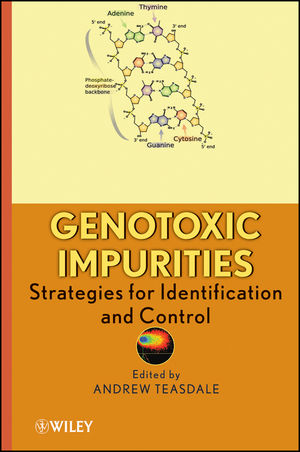Genotoxic Impurities: Strategies for Identification and ControlISBN: 978-0-470-49919-1
Hardcover
444 pages
March 2011
 This is a Print-on-Demand title. It will be printed specifically to fill your order. Please allow an additional 15-20 days delivery time. The book is not returnable.
|
||||||
“This book is a valuable resource when dealing with genotoxic impurities. Its publication is timely considering the new ICH M7 guideline under discussion. I highly recommend the book to toxicology and CMC professionals and to anyone with a general interest in genotoxic impurities.” (Drug Information Journal, 1 March 2012)
"This is an unmatched resource for understanding current regulations that guide the development of pharmaceuticals with respect to genotoxic substances, including the foundational principles upon which these guidelines were established. Armed with this knowledge, readers will appreciate the assessment of analytical techniques to control genotoxic impurities to a level that preserves both drug safety and quality throughout the development process." (Doody's, 26 August 2011)
"This is a very good book and addresses the issue in a very sensible, dare I say it, pragmatic approach." (The British Toxicology Society Journal, 1 May 2011)
"Overall, a valuable addition to a pharmaceutical scientists' library. The topics covered are relevant and of interest to various ‘stake-holders' in the drug development arena, including chemists, analysts and programme managers. I can recommend it." (Journal of Organic Process Research & Development, 2011)
"The style throughout is easy to read and content readily digested, especially those chapters [on] chemical process development and early-phase API development ... From a more practical point of view, the contents are well set out, and indexing appeared appropriate. ... Overall, a valuable addition to a pharmaceutical scientist's library. The topics covered are relevant and of interest to various ‘stake-holders' in the drug development arena, including chemists, analysts, and programme managers. I can recommend it." (American Chemical Society, 2011)



